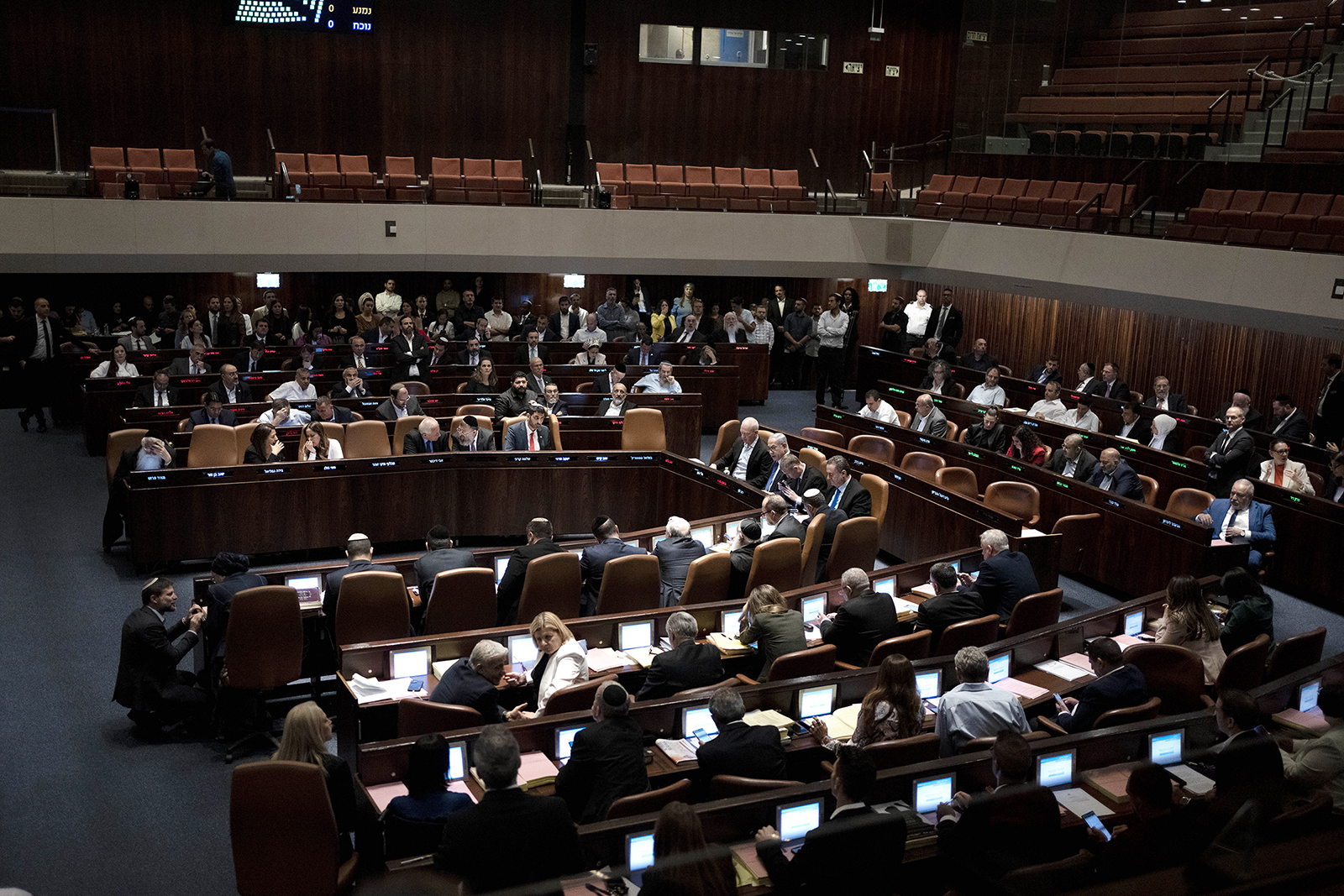JERUSALEM (RNS) — On Monday (July 24), Israeli Prime Minister Benjamin Netanyahu’s governing coalition, dependent on religious and far-right parties, passed a controversial law in the country’s parliament, the Knesset, that will limit the Supreme Court’s ability to scrutinize legal decisions by government ministers and the Israeli Cabinet.
Critics of the court claim it has come to be more powerful than the Knesset, so its authority needs to be weakened. Civil rights activists say the new law, and many others in the pipeline, could harm Israeli democracy. Both sides agree that it will strengthen the power of the Orthodox Jewish establishment.
Of the 141 bills waiting to be debated and voted on by the Knesset, 24 would expand Orthodox Jewish leaders’ control over the entire Jewish population, according to Restart Israel, a nongovernmental organization.
Some Israelis worry that the crisis could lead to a permanent schism between segments of the population.
“We should all fear the outcome of the amendment passed by the Knesset, with the promised barrage of legislation aimed at undermining the independence and authority of the Supreme Court,” said Uri Regev, president and CEO of Hiddush — For Religious Freedom and Equality, which advocates for secular and non-Orthodox Jews’ rights.
Regev predicted that approved and pending legislation will have “a devastating impact” on everything from gender equality, religious freedom and pluralism to the rights of Israel’s Arab minority.
“With a neutered Supreme Court, the ultra-Orthodox will be able to move Israel closer to a theocracy, entrench and expand their excessive privileges and further erode religious pluralism and the status of the non-Orthodox movements,” Regev said. And he believes that Finance Minister Bezalel Smotrich, a far-right-wing lawmaker, “seeks to make Arabs in Israel subservient to Jews and deny them equal rights.”

Israel’s Prime Minister Benjamin Netanyahu, at the head of the table, center right, and lawmakers attend a session of the Knesset, Israel’s parliament, in Jerusalem, July 24, 2023. (AP Photo/Maya Alleruzzo)
The day after the judicial reform vote, some conservative Orthodox lawmakers introduced a bill that would put full-time yeshiva students on equal footing with active-duty soldiers, stipulating that the state of Israel “views the encouragement of Torah study and Torah students with utmost importance.” When it comes to their rights and duties, it reads, these students “should be viewed as having served a significant service” to the country.
The proposed law drew quick condemnation from those who consider yeshiva students draft dodgers and who want the students’ military exemption to be overturned. The Likud, Netanyahu’s secular political party, was also angered by the bill and its timing, and said that it “will not be advanced.”
The weakening of the court will open the door to attempts by the Orthodox establishment to reclaim lost ground, according to Shlomit Ravitsky Tur-Paz, who heads the Religion and State program at the Israel Democracy Institute’s Center for Shared Society. Over time, the Supreme Court has gradually eroded the monopoly of the Chief Rabbinate in matters related to conversions, citizenship, kosher food supervision and even burial.
“They’re saying we just want to move the religious status quo back to where they were, to have more authority over the public sphere, and bigger budgets,” Tur-Paz said.
Seth Farber, an Orthodox rabbi and director of ITIM, an organization that has filed petitions challenging the religious establishment in the Supreme Court, believes the passage of the judicial law has given right-wing and religious lawmakers the sense that they can pursue their “sometimes narrow agendas without concern for the general public. This is most prominent in the area of religious legislation.”
In another bold move, the Knesset Law Committee met this week to advance a bill that would grant the minister of religious affairs unprecedented power in appointing hundreds of new rabbis to state-funded positions.
“This law would emasculate local communities from choosing their own rabbinic leadership — something that is in the interest of the Knesset members but not the public,” Farber said. “The coalition has a sense that they can simply bulldozer their way through legislation.”
In the emotional run-up to the vote on the judicial changes, some Orthodox Jews worried that religious extremists are putting their community’s interests above the needs of the country as a whole. According to Jewish tradition, the Second Temple was destroyed because of “baseless hatred” between the Jews of the Land of Israel.
In an online discussion related to Tisha B’Av and the secular public, Abbi Adest, who is Orthodox, called it a “disaster” to dictate to others how to observe the day of mourning.
“I’m a religious person who will start to fast and listen to Lamentations, and if my fellow citizens want to go out and have a steak tonight it genuinely doesn’t bother me,” Adest said just before the start of Tisha B’Av. “Democracy starts with honoring personal choice. We need to find a way to have a Jewish state that allows everyone to practice or not practice however they wish.”
For the sake of the Jewish people, “we have to get our noses out of each other’s business,” she said.





